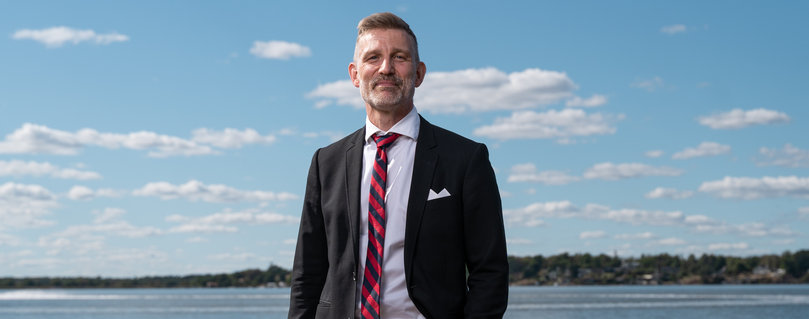Researchers look to the ocean as a resource

BTH has been part of producing Sweden’s first national innovation agenda for underwater technology and the researchers see many potential areas of use – even beyond marine applications.
“Energy and security are two major societal challenges where we can make a contribution,” says Oskar Frånberg, researcher and director for the National Centre for Underwater Technology at BTH.
Here, technology and applications are developed with the demanding environment under the water’s surface in mind. BTH is an important part of the local region’s unique environment and offers expertise in underwater technology, including extensive research and a Master of Science in Engineering programme specialising in marine engineering.
“BTH’s strength is that everything is close by, and we operate in a region with a naval base, shipyards, naval academy, coast guard, industries like NKT and SAAB and Blue Science Park, which together provide a fantastic environment through the Marine Technology Center of Sweden, MTC,” says Oskar Frånberg.
Solutions from our collaborative projects also lead to applications in completely different areas, such as water-filled mines, AI and data security, decontamination and customs surveillance. The fact that the Baltic Sea has brackish water means that shipwrecks are preserved for long periods and the technology for finding and investigating these old ships is also an area where BTH’s National Centre for Underwater Technology is contributing its expertise.
“The sea is largely an untapped resource and there is considerable scope for development. BTH has three main specialisations: security and the armed forces, energy and marine construction. Marine technology is not a subject, it is an application.”
“The three research areas are integrated. Developing something like digitised diving requires knowledge from all three,” says Oskar Frånberg.
Safety for people onboard ships and submarines and while diving are areas in which BTH is a world leader.
“We build on our strengths. The combination of our knowledge of the human/system relationship and our technical expertise is a strong contributing factor as to why we have come so far in marine safety,” says Oskar Frånberg.
Development in the field of energy often involves systems engineering for developing underwater sensors and digitalisation, not least for the extraction of wind and wave power, oil and gas. The sea is also playing an increasingly important role in connecting different types of energy and energy networks using cables along the seabed.
“Removing mines from the seabed before laying cables is a challenge, there are plenty of sunken mines left from both world wars. Another is to detect the location and depth of cables for the purposes of maintenance,” says Oskar Frånberg.
Research in marine construction is carried out together with large companies in the immediate area, and even here, BTH is also building on its expertise in product development. Sweden’s production of submarines and submarine rescue systems is internationally recognised, and parts of this development are being carried out in close collaboration with BTH.
5 October 2023